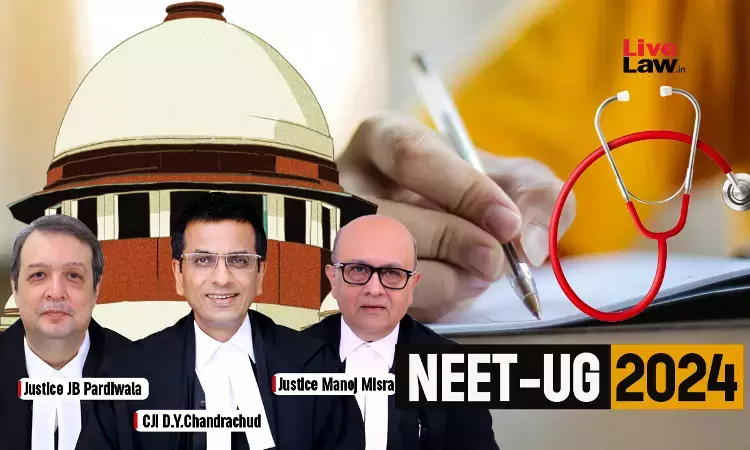NTA Should Avoid Flip-Flops Which Happened In NEET-UG Case : Supreme Court
Anmol Kaur Bawa
2 Aug 2024 11:16 AM IST

Next Story
2 Aug 2024 11:16 AM IST
The Supreme Court on Friday (August 2) criticised the National Testing Agency (NTA) for the "flip flops" it made in relation to the conduct of the NEET-UG 2024 exam.The Court was pronouncing the detailed judgment giving the reasons for its July 23 order which refused to cancel the NEET-UG exam held on May 5 over paper leak and malpractices.While holding that there was no material to show that...
